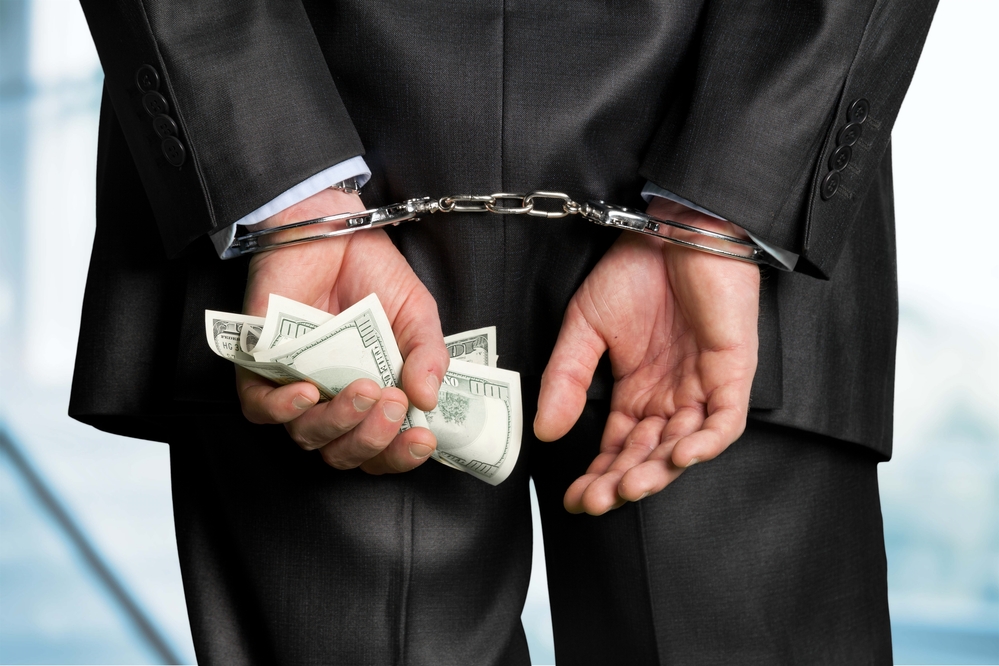The United States’ Park doctrine allows CEOs and other executives at drug and medical device companies to be criminally charged when their company engages in illegal activities. This is meant to deter this sort of action. However, despite the ubiquitous billion-dollar fines that pharmaceutical companies have paid after engaging in illegal activity, executives are rarely charged.
According to a new study in JAMA Internal Medicine, only 13 cases of Park have been brought since the 2000s, three of which were executives of Purdue Pharma for their alleged role in creating the opioid crisis.
“Corporate officers do not generally bear personal criminal liability for illegal activities of the companies they run as long as their actions fall within the scope of their position,” the authors write.
The study was conducted by C. Joseph Ross Daval, JD, Jerry Avorn, MD, and Aaron S. Kesselheim, MD, JD, MPH. The researchers are all members of the Program On Regulation, Therapeutics, and Law (PORTAL), Division of Pharmacoepidemiology and Pharmacoeconomics, at Brigham and Women’s Hospital and Harvard Medical School in Boston.
 Because they rarely face charges, CEOs are able to pump up the profits of a company into the tens or hundreds of billions using illegal methods. Then, when the case is finally prosecuted, the company itself pays a fine or settlement in the millions or billions of dollars—small change compared to the massive profits they made. The CEO escapes scot-free and moves to another company, beginning the process all over again.
Because they rarely face charges, CEOs are able to pump up the profits of a company into the tens or hundreds of billions using illegal methods. Then, when the case is finally prosecuted, the company itself pays a fine or settlement in the millions or billions of dollars—small change compared to the massive profits they made. The CEO escapes scot-free and moves to another company, beginning the process all over again.
Notably, even famous trials of executives—such as the trial of Elizabeth Holmes, CEO of Theranos—did not involve prosecuting using Park, even though they could have. (Holmes was convicted of defrauding investors, an individual offense, rather than being charged for the illegal activities of her company.)
The researchers write, “These findings suggest that the government has not exercised the full scope of its authority to prosecute corporate officials responsible for the illegal behavior of the drug and device companies they run. Enforcement under a reinvigorated Park doctrine could better promote the doctrine’s goal of protecting patients.”
The Park doctrine was established in a 1975 Supreme Court case, United States v Park, which found that executives of a drug or device company could be convicted if they had the ability to prevent or correct illegal actions by others in their company—even if they did not intend to break the law themselves. This makes it a powerful tool for holding leaders accountable to set a culture of honesty and transparency throughout their company.
Since 2000, major pharmaceutical companies have been forced to pay billions of dollars in fines or settlements after illegal activities.
Daval, Avorn, and Kesselheim write, “Over the past two decades, the DOJ has charged nearly every major pharmaceutical manufacturer doing business in the US with defrauding Medicare and Medicaid under the False Claims Act. But the DOJ nearly always targeted the corporations, rather than the individuals who ran them.”
The following is a list of some of the worst offenders:
- In 2004, Pfizer paid $430 million for illegally pushing their drug Gabapentin to doctors; in 2009, they paid $2.3 billion for fraudulently promoting Valdecoxib after the FDA specifically did not approve the drug because of safety concerns. In 2013, they paid $491 million for illegally promoting Rapamune. In 2014, they paid $325 million for illegally marketing Bextra, Geodon, and Lyrica. Pfizer should have been excluded from Medicaid and Medicare because of this fraud conviction. Instead, according to CNN, a shell company—that had never sold a single pill—was charged instead so that Pfizer itself wouldn’t take the hit.
- Lest you think this was all in the past: In 2022, Pfizer paid out £63 million after breaking UK antitrust laws around drug pricing.
- In perhaps the most concerning case, Pfizer paid $40 million beginning in 2011 after it was discovered that they had engaged in drug testing in Nigeria without obtaining consent from their research subjects, secretly dosing poor Nigerian children with their experimental antibiotic trovafloxacin. Some children died as a result, while others were plagued with lifelong health problems.
- In 2009, Eli Lilly paid a $1.4 billion fine for the illegal promotion of the antipsychotic Zyprexa. In 2005, they paid $36 million for the illegal promotion of Evista.
- In 2012, GlaxoSmithKline (GSK) paid $3 billion for failure to disclose safety concerns (among other illegal activities, such as bribing doctors) regarding a whole slew of their drugs, including the antidepressants Paxil and Wellbutrin.
- In 2010, GSK paid $150 million after it was discovered that they were selling improperly made, defective, and adulterated drugs, including the antidepressant Paxil, cheaply made at their Puerto Rico subsidiary.
- In 2016, GSK paid £37 million in the UK for market manipulation after it was discovered that they were bribing drug manufacturers tens of millions of dollars to refrain from selling generic versions of Paxil in the UK.
- In 2013, Johnson & Johnson (J&J)/Janssen paid $2.2 billion after being federally charged with illegally promoting the antipsychotic drug Risperdal. This came after they had already been fined more than a billion dollars by various US states for deliberately hiding the serious harms of Risperdal.
- In 2011, J&J paid $78 million to US and UK authorities to settle charges of kickbacks and bribery.
- Again, lest you think this is all in the past: In 2019, J&J paid $117 million after lawsuits found that they had misled patients and doctors, concealing the known harms of their vaginal mesh implants.
- And, in perhaps the highest-profile case recently, in 2021, J&J managed to set up a shell company to declare bankruptcy—blocking about 38,000 lawsuits that alleged the company knew for decades that their baby powder causes ovarian cancer. Johnson & Johnson itself will face no charges for the harm they caused.
- And, as part of the opioid epidemic this year, J&J settled—avoiding any criminal charges—by agreeing to pay $5 billion.
No executives were charged in these situations, so the top people responsible for the companies’ decisions were able to take their huge profits and continue marketing their drugs to the public.
Besides the Purdue Pharma opioid case, none of the other top 16 cases of pharma misconduct pursued by US officials in the last 20 years involved the Park doctrine.
The remaining ten instances of Park prosecutions (besides the three Purdue convictions) were for lesser-known, small pharma and device companies.
Daval, Avorn, and Kesselheim write that Park should be used more often to prosecute executives who preside over illegal activities in drug and device companies. They suggest that this could help to deter these types of fraudulent behaviors—since the current penalties (fines and settlements) are a small price for a corporation making tens (or hundreds) of billions of dollars a year to pay for their enormous profits. Indeed, as noted above, several corporations have been able to avoid these penalties, at least in part, simply by creating shell companies to take the fall.
They add that the President, the FDA, and/or the Department of Justice should prioritize the use of Park. They also suggest that congress could act to further enhance the laws around its use.
The researchers write that holding executives responsible for their corporations’ conduct “could serve as an important deterrent against violations of the public’s expectations of proper behavior of corporate leaders in the medical products sector.”
****
Daval, C. J. R., Avorn, J., & Kesselheim, A. S. (2022). Holding pharmaceutical and medical device executives accountable as responsible corporate officers. JAMA Intern Med. Published online September 19, 2022. doi:10.1001/jamainternmed.2022.4138 (Link)















this is an old story. Gangs of America details the whole history of how corporations were given the rights of humans, in order to prevent those running the corporations from being libel for what the corporations have done. http://www.gangsofamerica.com/gangsofamerica.pdf All corporations play that game…..
Report comment
Sage advise, Peter, and thanks for pointing out all these unrepentant, systemic crimes of the Pharmakia execs. Let’s hope and pray that the big Pharma satanists are some day held accountable for their systemic crimes … and the doctors are finally seen as the morons they are, for trusting only in the big Pharma claimed “evidence based medicine” propaganda, instead of practicing the art of medicine, listening to their patients, and doing what’s right for their patients instead.
Report comment
Well said.
Report comment
https://youtu.be/NkpiwR7oy_4
Another fabulous article by you Peter. So clearly stated. Thank you.
Here is a cheery goodbye song that speaks of a hope that we may all be liberated one day from whatever ails us or whatever we bewail of. The song is called Liberte.
I have to go for good now. I want to be with the New Age lightworkers. The mumsy lot. Goodbye my friends…Goodbye.
Report comment
I was struck by a quote I read last week regarding society, and wondered about the way it might be applied to particular industries in a canary in a coalmine manner.
“A society [industry?] becomes totalitarian when it’s structure becomes flagrantly artificial; that is, when it’s ruling class has lost it’s function but succeeds in clinging to power by force or fraud” (Blair).
It seems to me that the collusion between the ‘ruling class’ of this industry , and those with a duty to enforce the laws to protect the public they are abusing is precisely where the ‘flagrantly artificial’ structure exists, and where the loss of function is most visible. They (the ‘ruling classes’) have no duty to the community anymore, and only serve the interests of their own pockets. Flagrantly.
And what are you going to do about it when they have the use of force and the fraud of ‘mental health services’ to protect them?
To quote another great thinker……. “it’s time for cake and sodomy” (Marilyn Manson)
Report comment